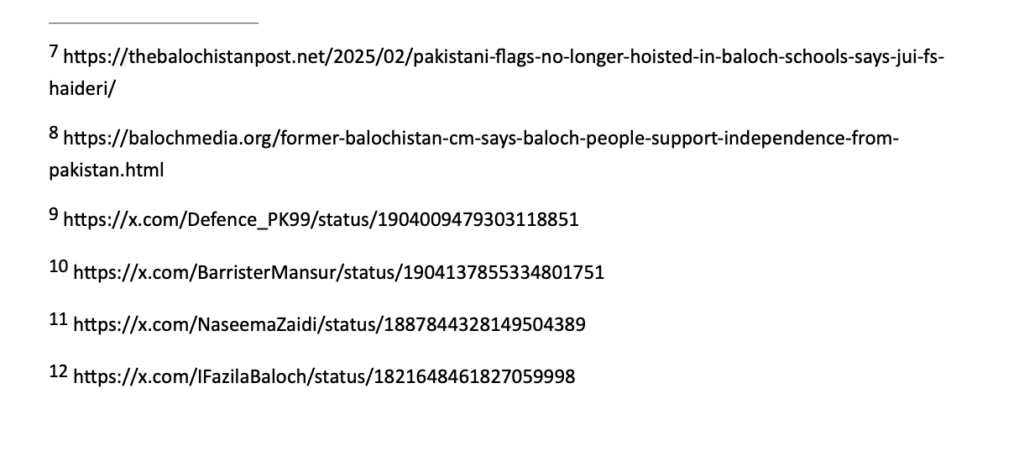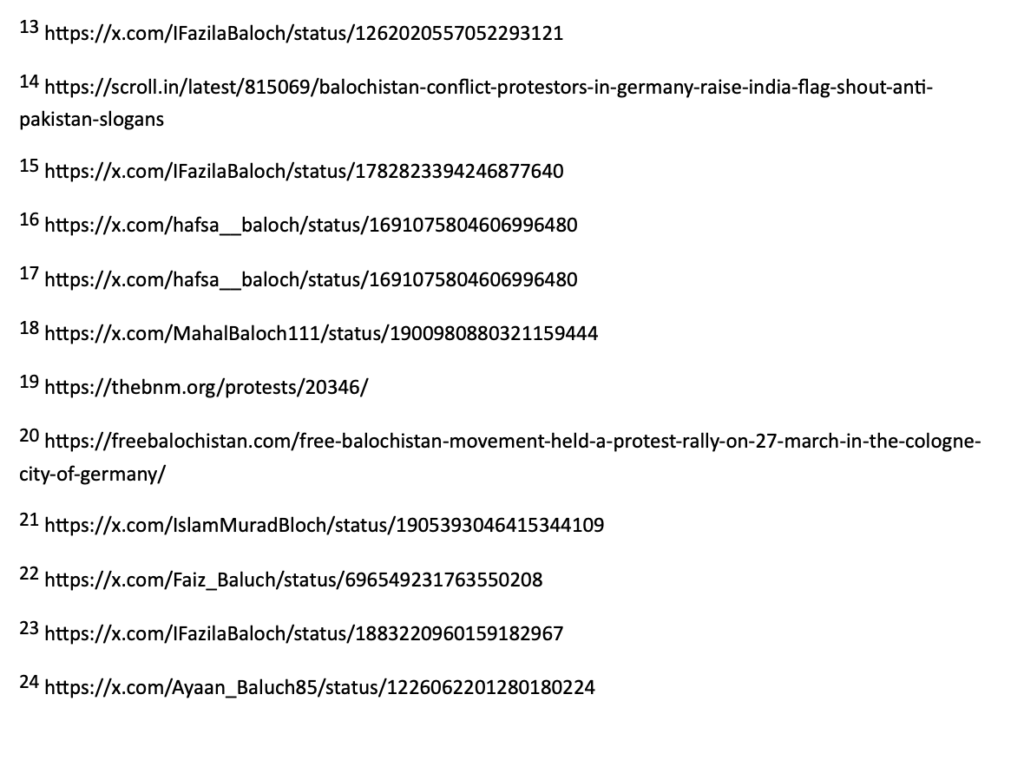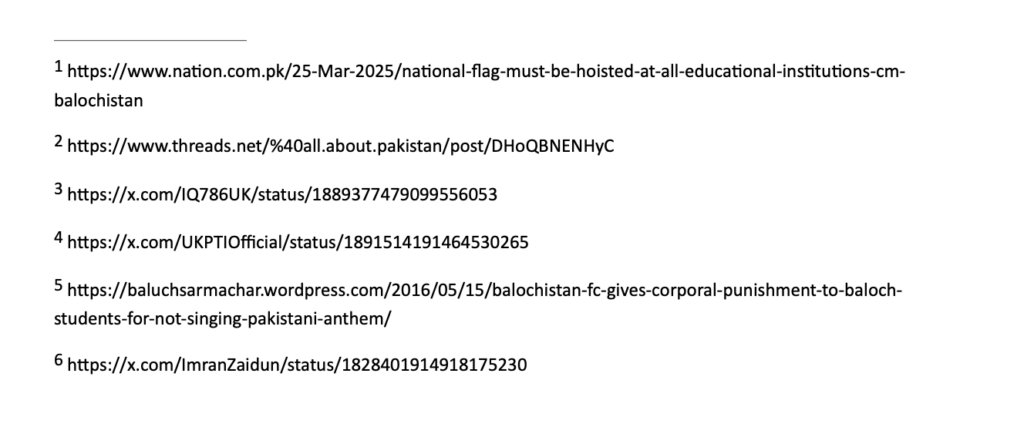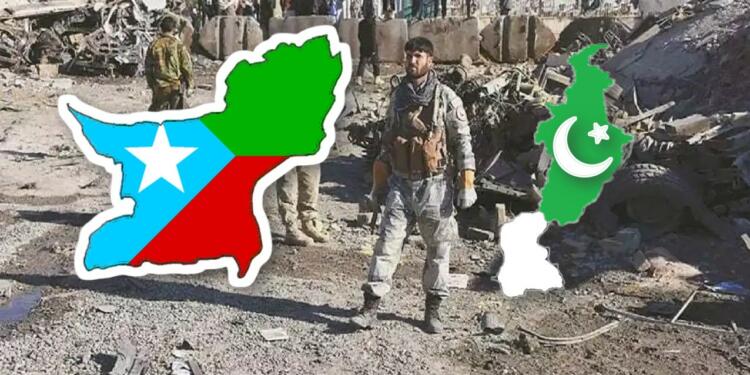The resolve of people in Balochistan against hoisting the Pakistan flag and singing the national anthem is growing stronger despite the Islamabad government’s taking forceful measures to instil nationalism in the region. The government has warned the people, government employees and educational institutions in Balochistan of a strict action if the national flag was not hoisted, terming it an ‘anti-state propaganda. ’ However, the threat seems to have had no impact.
Leader of opposition Omar Ayub Khan said the situation was turning against Pakistan in Balochistan. “In 8 districts of Balochistan, you can neither hoist the flag of Pakistan nor sing the national anthem of Pakistan, people are so bitter with establishment,” he said. Pakistani authorities used brutal violence against the Baloch students who refused to sing the national anthem.
Baloch people, especially school-going children, are now refusing to hoist the Pakistan flag. Instead, they are hoisting the flag of Balochistan everywhere. “The National Flag of Free Balochistan was hoisted, marking significant milestone in Balochistan’s quest for identity and autonomy. This event symbolizes the aspirations of the Baloch nation,” said a research scholar named Imran Zaidun.
Maulana Abdul Ghafoor Haideri, lawmaker and General Secretary of Jamiat Ulema-e-Islam (JUI-F), acknowledged the fact that the Pakistani flag was no longer hoisted in Balochistan even as the local people adopted their own anthem. Moreover, anti-Pakistan slogans were raised due to heightened grievances. “People’s legitimate grievances must be heard,” he said.
Baloch people are agitated over the Pakistani state’s continued war crimes against them, which have led them to struggle for justice. Now, they want independence from Pakistan, said Nawab Aslam Raisani, former Chief Minister of Balochistan Nawab Aslam Raisani. “A large majority of the Baloch people are pro-independence and are actively striving for national freedom,” he said.
Several videos showing Baloch people celebrating Pakistan Day on March 23 surfaced on social media. These videos claimed that Baloch people gathered in a large crowd and raised slogans, cheering for Pakistan. However, soon, many locals refuted the claim, saying the crowd that was depicted as Baloch people were army men in civil dress.
It is a lie, said Barrister Mansoor, who identified himself as a core committee member of Imran Khan-led Pakistan Tehreek-e-Insaf (PTI). “I was personally there. A small rent-a-crowd and service men in plain clothes: sir gone are the days when you could fool we the people,” he said on X. A boy from Balochistan revealed that he was offered money to wave the Pakistani flag.
Human rights activist Fazila Baloch shared a video on X that showed a man from Balochistan removing and tossing away the Pakistani flag near an army cantonment. Earlier, she posted another video showing Baloch people burning the Pakistani flag. Making the matter embarrassing for Islamabad, the Baloch protestors were often seen waving Indian flags.
Another video showed Baloch women burning the Pakistani flag on its Independence Day, calling it Black Day. “We know there is no point in burning the flag, but what if our hearts are burning? Ever since Pakistan came into existence, this terrorist state has been constantly committing a series of crimes against humanity,” said dissenter Hafsa Baluch.
After Pakistani authorities’ forceful imposition of the national flag, Baloch people openly rejected it, saying, “Balochistan Is Not Pakistan.” Many rallies have been held in different parts of the world by the dissenting Baloch people. They said Balochistan was occupied forcefully by Pakistan, so there would be no place for the Pakistani flag.
Thus, the refusal to hoist the Pakistani flag has become a movement to seek justice against the suppression and for the creation of a separate nation of Balochistan. “If we remain silent today instead of raising our voices, our existence will be erased. This war for national survival and identity must be taken out of our own land and spread to every corner of the state so that our voice is heard, said human rights activist Zara Baloch.
The Pakistani government and news media ignored the plight and struggle of Baloch people by calling it “peripheral” and “insignificant,” said Jaffer Mirza, Pakistani researcher at King’s College in London. “It is clear that every person in Balochistan wants freedom, justice, and dignity – rights they have been denied for over 70 years. Pakistan can’t continue denying fundamental rights to the Baloch people,” he said.




